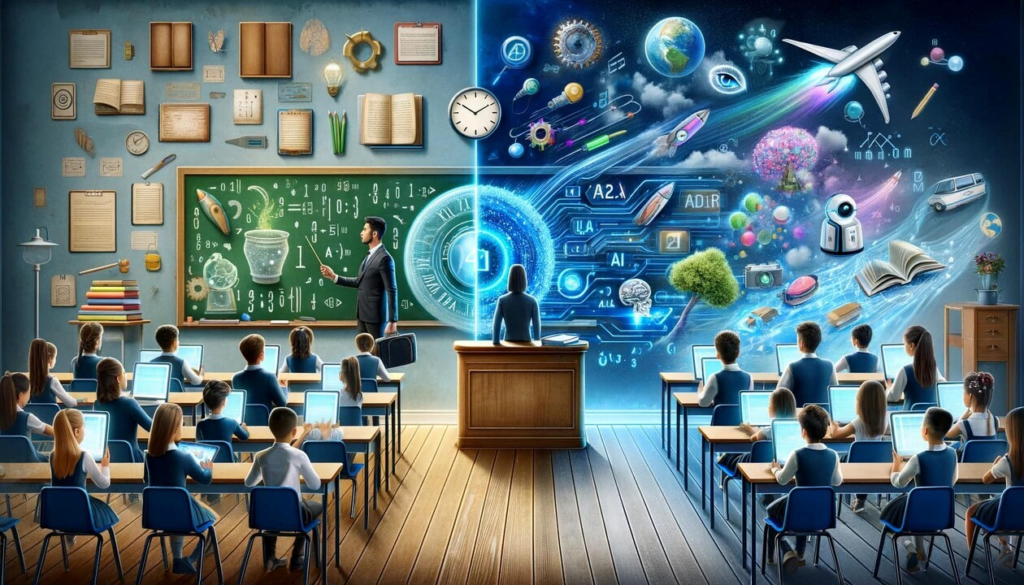he Delhi government has announced a major education overhaul aimed at transforming government and municipal schools into future-ready learning spaces within the next five years. Education Minister Ashish Sood outlined the plan during a school bag distribution event at an MCD School in Lajpat Nagar, where he emphasised the need for modern classrooms, redesigned infrastructure and artificial intelligence enabled learning systems.
Sood described the initiative as a turning point for public education. According to him, every child in Delhi deserves learning environments that reflect the demands of the future rather than the limitations of the past. The government has positioned this move as a large scale commitment to upgrading both MCD schools and Delhi government schools, with corporate social responsibility partnerships playing a central role in making these improvements possible.

AI Powered Classrooms to Become the New Standard
The minister explained that the government’s new plan aligns directly with the National Education Policy 2020, which encourages the use of advanced technology in teaching and learning. As part of the initiative, schools will be equipped with AI based learning tools that can personalise classroom instruction, support teachers in lesson planning and provide students with interactive learning pathways.
In addition to new digital systems, classroom layouts will also be redesigned. Furniture will be modernised, seating will be restructured to promote group learning, and teaching spaces will be organised to support both traditional and tech based instructional methods. Sood highlighted that these reforms are not meant to replace teachers but to empower them with stronger tools that help them reach students more effectively.
He described the event in Lajpat Nagar as a personal moment of connection. Coming from a background in government schooling himself, he referred to it as a homecoming and spoke about the symbolism behind distributing school bags. For him, the bags represented not only educational materials but the dreams and aspirations contained within every child who enters a classroom.
A Shared Responsibility Between Teachers and the Government
While talking about infrastructural upgrades and new technology, Sood also placed strong emphasis on the role of teachers. According to him, education cannot be strengthened by policy alone. It requires active and inspired participation from teachers who drive daily classroom practices. He urged educators to take ownership of the reforms and to collaborate openly with the government and community partners.
The minister emphasised that improving classroom learning is a collective responsibility that involves the government, teachers, parents, community groups and CSR organisations. His message underscored the idea that modern learning environments can only succeed if every stakeholder is committed to long term change.
During the event, more than 2200 school bags were distributed to students from nursery to Class 5 through a CSR partnership with GAIL. Several prominent figures joined the initiative, including Lok Sabha MP Bansuri Swaraj, MCD Education Committee Chairman Yogesh Verma, MLA Neeraj Baisoya, Municipal Councillor Sharad Kapoor and representatives from Peepul, a non profit organisation working in the education sector.
Partnerships Strengthening Public Schooling
The Lajpat Nagar school holds a special place in the city’s education reform timeline. It was one of the first schools revitalised through a collaboration between MCD and Peepul in 2015. Speaking at the event, Peepul co founder and Director of Education Urmila Chowdhury reflected on the decade long journey of the institution. She shared that seeing the progress celebrated today felt deeply meaningful, given that their earliest collaborative work began here.
Chowdhury highlighted that improvements in teaching practices are equally important as infrastructural upgrades. She pointed out that consistent partnerships and committed interventions have helped raise learning outcomes significantly over the years. According to her, these developments demonstrate how sustained collaborative efforts can lead to real transformation in public schools.
A Vision for Future Generations
Sood expressed confidence that public schools in the national capital will soon reach a standard where they will become aspirational institutions. He said that under the guidance of Prime Minister Narendra Modi and Chief Minister Rekha Gupta, the city’s education system is on track to reach a level where future generations will seek recommendations for admission rather than see these schools merely as accessible options.
The five year AI integration plan marks one of the largest modernisation efforts undertaken in Delhi’s education sector. If implemented successfully, the initiative has the potential to reshape classroom experiences, improve learning outcomes and enhance the overall quality of public education for more than a million students.
Also Read: https://thenewstudent.com/the-impact-of-social-media-on-peer-pressure-in-adolescents/
https://www.indiatoday.in/education-today/news/story/delhi-orders-intensive-school-inspections-till-feb-2026-to-boost-learning-2821890-2025-11-18?utm_source=story_btm_also_read&utm_medium=alsoread&utm_campaign=story_url